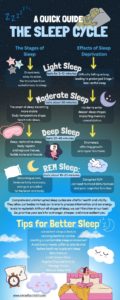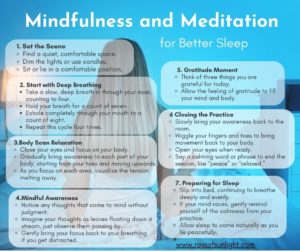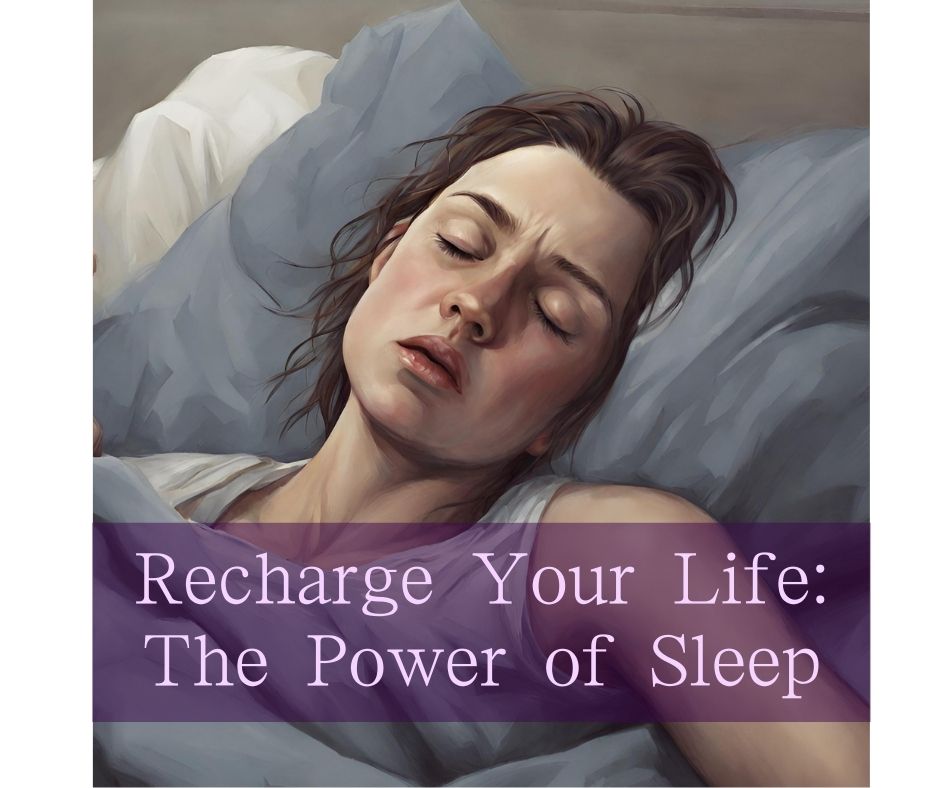As an Amazon Associate, as well as an affiliate of other programs, I earn from qualifying purchases. This may influence which products I write about and where and how the product appears on a page. However, this does not influence my evaluations or recommendations. My opinions are my own.
Have you ever experienced those nights when you can’t seem to fall asleep? You’re definitely not alone. Today lets
explore the health risks associated with sleep deprivation and understand why it’s more, than an inconvenience—it can actually be detrimental to your well being.
The Real Cost of Burning the Midnight Oil
Feeling a bit groggy is the tip of the iceberg when it comes to the health risks of not getting sleep.
What’s the Big Deal?…
It might be tempting to shrug off one night of tossing and turning thinking it won’t have impact. However don’t be fooled. In the short term you may experience grogginess and a general sense of being out of sorts. In the long term sleep deprivation can lead to serious health issues such as heart disease, diabetes and mood disorders.
 1. Mental Hazards: Sleep Deprivation and Your Cognitive Function
1. Mental Hazards: Sleep Deprivation and Your Cognitive Function
When you don’t get sleep it doesn’t just affect your mood—it also impairs your mental sharpness. According to an article published by the National Sleep Foundation, inadequate sleep can disrupt functions, like concentration, memory retention and decision making abilities.
Think of your brain as an engine that requires some downtime to function at its best. Have you ever experienced difficulty remembering names or performing calculations after a nights sleep? That’s your brain signaling the need, for some needed rest.
While you explore the consequences of sleep deprivation take a look to the left at our infographic titled “Unpacking the Sleep Cycle; The Health Impacts of Missing Out.” It serves as a companion illustrating the stages of sleep and the specific effects of not getting enough shut eye.
2. Your ❤️ Isn’t Immune to the Effects of Sleep Deprivation
Don’t underestimate the stress you’re putting on your heart when you skimp on sleep. Consistent lack of sleep doesn’t just make you irritable; it can escalate to serious health concerns like high blood pressure, irregular heartbeat, and even a greater risk of heart disease. Sleep is when your body gets to ‘reset,’ and this includes vital functions like lowering your heart rate and blood pressure. So, when you deprive yourself of sleep, you’re essentially asking your heart to work overtime without a break.
3. Cravings and Blood Sugar
We all know that when we’re tired we often crave energy boosts, like sugar or caffeine.. Were you aware that not getting sleep can affect how your body responds to insulin? According to an article on WebMD article, lack of sleep can lead to elevated blood sugar levels. Increase the risk of developing Type 2 diabetes over time. Of reaching for that candy bar consider alternatives such as fruits or proteins that won’t disrupt your blood sugar levels. It’s not about avoiding sugar; it’s about making choices that prioritize your body’s needs.
Further Reading to learn more about sleep
While we’ve talked about the importance of sleep and its impact on our health, there’s always more to discover. For anyone looking to dive deeper, I recommend these books, which offer some practical advice:
“Why We Sleep: Unlocking the Power of Sleep and Dreams” by Matthew Walker, Ph.D. If you’re curious about the science behind sleep, Dr. Matthew Walker’s comprehensive guide is an essential read. It unravels the critical importance of sleep and provides a wealth of knowledge to help you understand how sleep can enhance every aspect of your life. Explore the book here: https://amzn.to/3slf16N
“Sleep Smarter: 21 Essential Strategies to Sleep Your Way to a Better Body, Better Health, and Bigger Success” by Shawn Stevenson. Which breaks down the complexity of sleep into actionable strategies that anyone can apply to begin experiencing more restful nights and energized days. His approach will not only change the way you think about sleep but also equip you with tools to improve it. Get your copy here: https://amzn.to/3soQ2iX
Okay, What’s the Fix?… 
1. Routine, Routine, Routine!
Consistency is key. Try going to bed. Waking up at the time every day even on weekends. I understand it may be challenging. Your body will appreciate the rest.
2. Put away the Screens
Your phone might be part of your bedtime routine. The blue light it emits isn’t doing you any favours. Consider reading a book or practicing breathing exercises before going to sleep
3. Stay Active
Physical activity can contribute to better sleep quality. However be mindful of timing—doing workouts before bed might actually keep you awake.
4. Boost Your Immunity
Lack of sleep doesn’t just leave you feeling tired; it can also have an impact, on your system. Getting sleep is crucial for building an immune response. If you’re interested in learning about ways to boost your immunity take a look at my article on Enhancing Your Immune System Naturally. Check out my article on Natural Ways to Build Immunity.
5. Reduce Caffeine Consumption
Drinking caffeine later in the day can significantly affect the quality of your sleep. It’s best to limit your intake of caffeine to the mornings and consider opting for teas or warm milk in the evening
6. Establish a Relaxing Bedtime Routine
Create a routine before bedtime that signals to your body that it’s time to unwind and prepare for sleep. This could include activities like taking a soothing bath doing some stretches or spending a minutes practicing mindful meditation.
7. Choose Healthy Evening Snacks
Eating meals before going to bed can disrupt your sleep patterns. If you need a snack before hitting the sack go for light and easily digestible options such as fruits, yogurt or a small handful of almonds.
8. Pay Attention to Room Temperature
The temperature of your sleeping environment can influence how quickly you fall asleep. Its recommended to keep the room temperature, around 18°C (64°F) so adjust your thermostat accordingly for sleep conditions.
As we delve into these tips, for achieving a restful nights sleep you’ll notice a helpful visual guide on the right side that complements our discussion. Our ‘Mindfulness and Meditation’ infographic provides a step by step process to assist you in winding down before bedtime. Its designed to be a to follow routine that seamlessly integrates into your ritual ensuring that you’re in the right frame of mind to embrace a peaceful slumber.
9. Limit Naps
While taking a nap can provide refreshment, lengthy or late day naps can disrupt your sleep pattern. If you feel the need to nap try keeping it under 20 minutes and avoid doing after 3 PM.
10. Embrace the Darkness
Light plays a role in regulating your body’s clock. Make your sleeping environment as dark as possible using blackout curtains or an eye mask.
11. The Unsung Hero of Sleep Hygiene: Your Mattress
While we often focus on bedtime habits it’s important not to overlook the unsung hero of our sleep; the mattress. A suitable mattress is vital, for achieving a nights rest providing support and comfort tailored to your body’s requirements.
Don’t underestimate the significance of your mattress when it comes to maintaining alignment alleviating pressure points and achieving that subjective sense of comfort. The experts, at Sleep Foundation. have provided insights on how a chosen mattress can truly transform your sleep experience.
Find Your Perfect Mattress Match
Picking out a mattress is a personal journey—what works for one person might not be the dream choice for another. Here are some options that I’ve found to be fantastic, but always remember to consider what feels right for you:
Memory Foam Mattresses: This one’s for you if you like your mattress to adjust to your shape. That will provide pressure relief and support and it’s comfort you’re after: https://amzn.to/40n59Gd
Latex Mattresses: If you are looking for a mattress that is kind to both our planet and your wallet? This natural mattress is supportive, doesn’t hold the heat and Budget friendly. Latex Hybrid Mattress https://amzn.to/3sdEGOT
If you’re looking to refresh your bedding. 100% cotton 1000 thread count sheets here: https://amzn.to/49owUSP
Final Thoughts
We often underestimate the importance of getting a good nights sleep. It’s crucial to consider the health risks associated with sleep deprivation. As both a nurse and a wellness advocate I have personally witnessed how the quality of our sleep can significantly impact our lives. So it’s essential not to compromise on rest. Make sleep a priority to improve your health enhance function and elevate your overall well being. Because you deserve it.
if you have enjoyed this post… Please send me some love…share, like and comment ❤️
Connect with Me!
For daily doses of inspiration, heartfelt stories, and game-changing wellness strategies, make sure to stay connected.
Natalie Fletcher
Visit my website: RaysofSunlight
Follow me on Facebook: Natalie Fletcher
True Balance Nanaimo: Facebook Page
Connect with me: Linktree
Reach out via Email: 8TrueBalance@gmail.com
Ready to level up your life, both in wellness and wealth? Let’s start this transformative journey together!
Discover more from TrueBalance
Subscribe to get the latest posts sent to your email.


4 thoughts on “Health Risks of Sleep Deprivation: Why You Need Sleep”